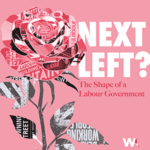WA’s Senior Advisors draw on their experience at the heart of Whitehall — reflecting perspectives as a special adviser in the Treasury and Department of Health, and senior Treasury civil servant, and Permanent Secretary in the Department for Business, and Department for Transport.
Sir Philip Rutnam, Chair of WA’s Advisory Board and former Whitehall Permanent Secretary
Budgets always matter. The British state raises and spends £1.2 trillion a year – £7 million just in the time it takes you to read this blog – so the way it does that affects everyone. But the Budget on Wednesday matters even more: it’s a once in ten or twenty years event, the first Budget at the start of a new Government. Here are five things I’ll be looking for to make sense of what happens on Wednesday.
First, is the overall narrative linked to a convincing plan? Expect a narrative all about boosting growth – the only practical way for us to get out of the spiral of poor public services, low aspirations and high inequality. But will the narrative be matched by plans that have enough breadth and depth? And will those plans involve building the dull but necessary capability to deliver, not least local and regionally?
Second, can the Chancellor really manage the politics successfully? Budgets are fraught with political risk. And that’s not just true about the macro-politics of Manifesto promises. It’s also about little things and unintended consequences. Are her team sufficiently adept (and lucky) to spot accidents before they happen?
Third, what’s the message for public services? This Budget will only settle current spending for one year, though capital budgets may go out further. We know some budgets are going to be protected – expect health to be top of the list, followed by schools. But public services everywhere are under pressure and in some places that’s acute: local government, criminal justice, defence. Who’s going to be disappointed? Look out for Cabinet Ministers keeping a low profile.
Fourth, and linked to that, what’s the message on reform? Labour needs a serious plan for how it will get more out for whatever it puts in – a mix of technology, transformation, and leadership. Any sign of that?
And finally, what about the framework for all of this? The Chancellor has said that she’s changing the fiscal rules, conveniently making room for more borrowing and investment? But on average the fiscal rules change every 2½ years. Is there any reason to suppose these rules will last longer? And what is she doing to change the Treasury, to give it as much focus on growth as on finance?
Jennifer Gerber, Senior Political Advisor and former Labour Treasury Special Advisor
After 14 long years and three intense months of speculation, Labour’s first budget in government is just 2 days away. Yet to many it may feel like it’s been a neverending budget debate since July 4th, when Labour won with a mandate for change.
Many ministers and advisers across government, with hindsight, now regret the decision to delay the budget for so long, nor introduce a emergency budget in the summer. What this meant was months of speculation about what the Chancellor would do, and the limited ability for Cabinet Ministers to say too much about some of their plans, without knowing what their financial settlement or the Government’s spending priorities will be.
Of course there were good reasons to hold off and take stock of public finances, not least because both the PM and Chancellor wanted to make clear where the blame lies when it came to the perilous state of the public purse. With public services on their knees, prisons full to bursting and local councils going bust, the new government needed time to explain to the public how challenging things will be. However, the political doom and gloom may have felt too much to those in the Labour party who wanted to also show that, as the song says, things can only get better.
How to communicate how bad things are without scaring people or scuppering growth has been a hard balancing act, and many around the Chancellor and PM will want the budget to clarify Labour’s vision for government and what it hopes to achieve. This is hard when the endless chat has been focused on which taxes will and won’t be fiddled with (CGT, IHT etc) and what is the exact definition of ‘working people’.
With all eyes on parliament this Wednesday, the PM and Chancellor hope that with financial clarity the government can move on from the budget speculation noise and show the public how things are really changing. Though if Health and Education will be the only vaguely happy departments, the noise really doesn’t go away, it just changes!
